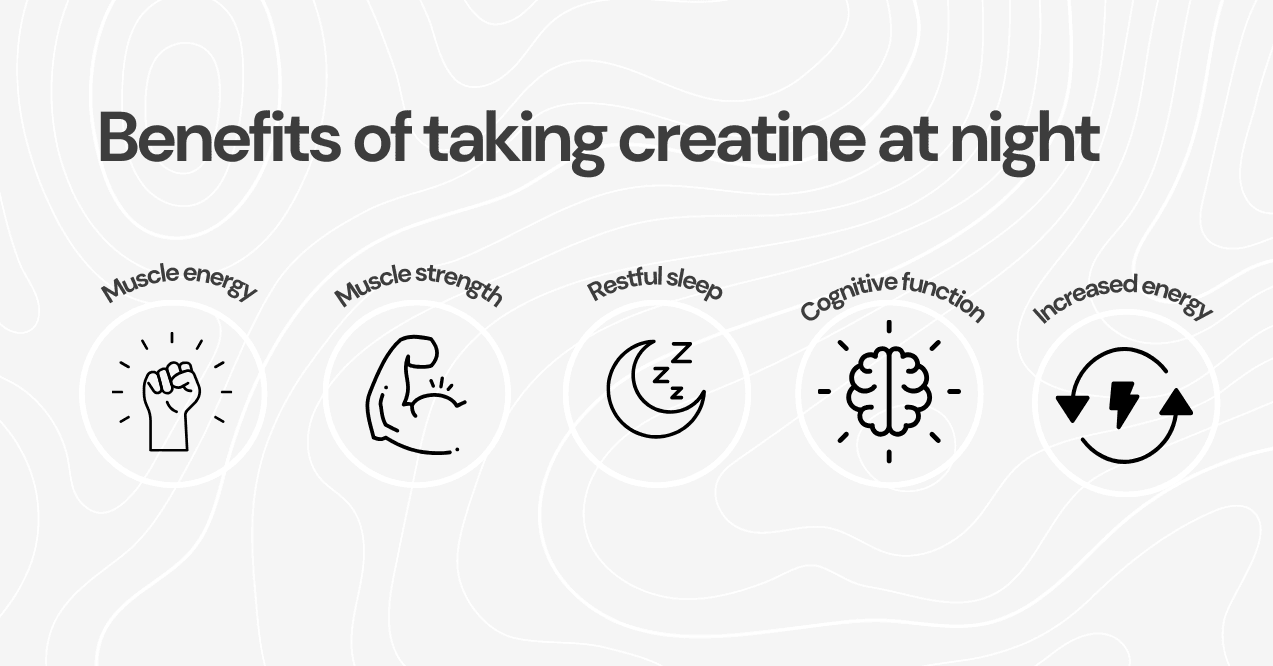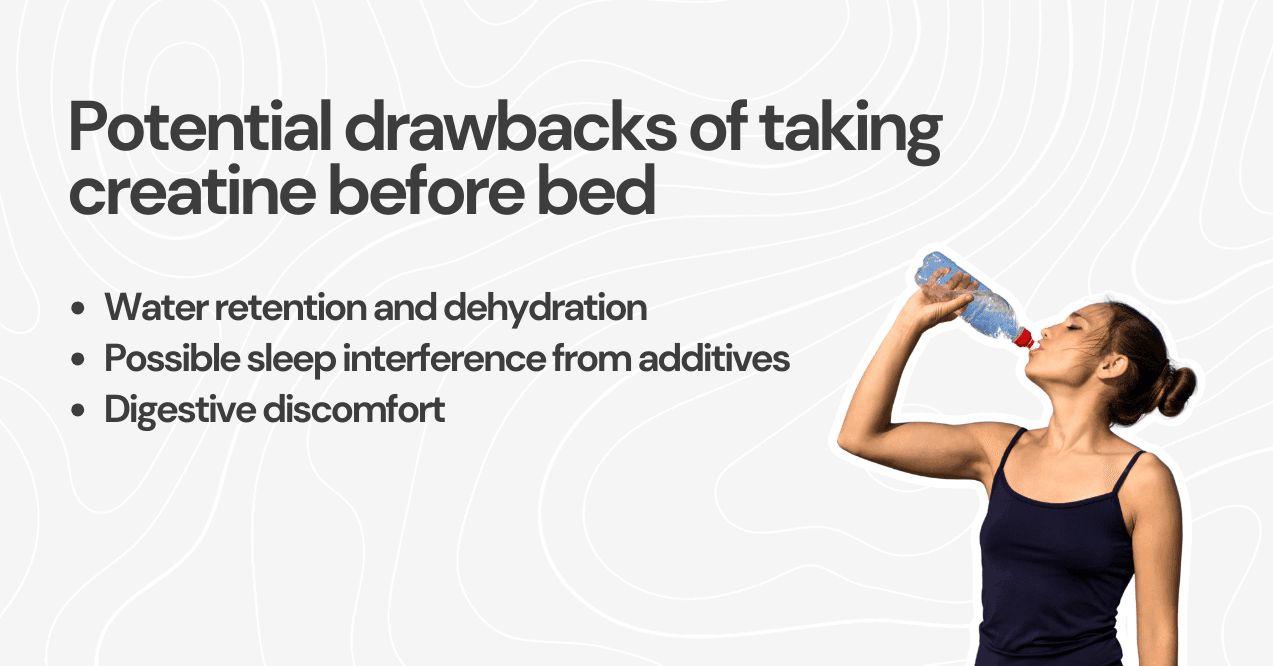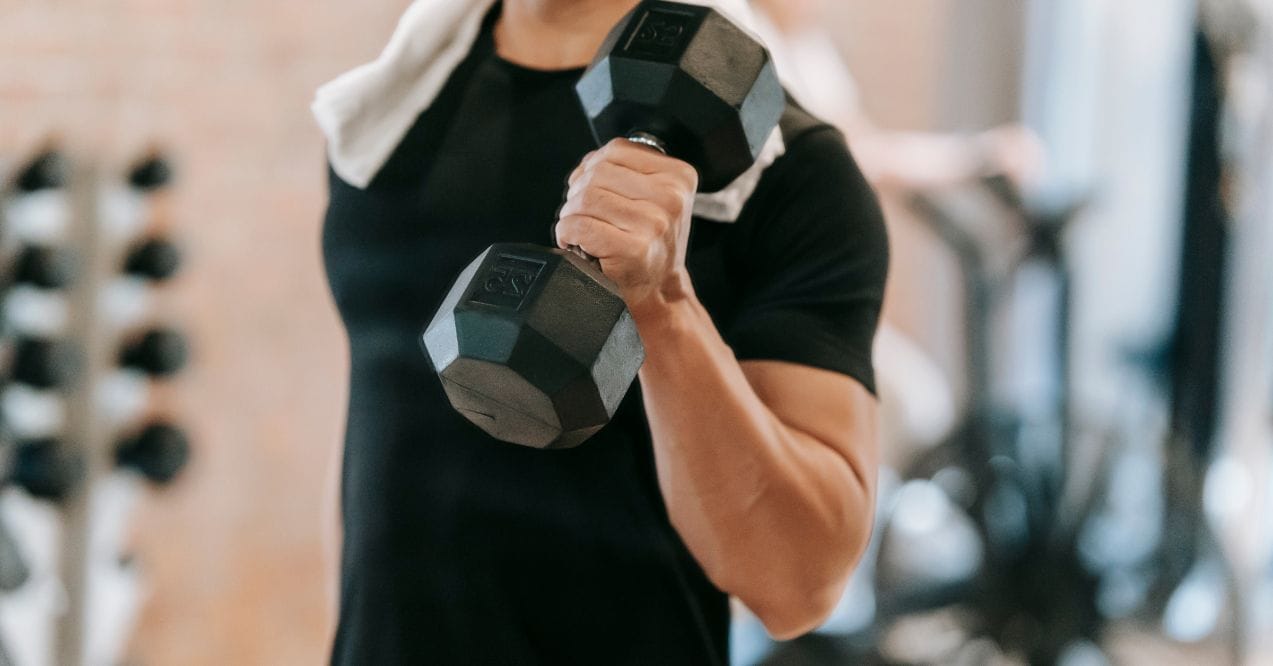Can I Take Creatine Before Bed? What Experts Say
Creatine is one of the most popular supplements in the fitness world, known for its ability to support muscle strength, endurance, and recovery. Whether you’re lifting heavy, sprinting, or simply aiming to perform at your best, creatine can be a game-changer. But timing matters – at least, that’s what many believe.
But can I take creatine before bed? This question sparks debate among athletes and gym-goers. Some say it’s the perfect way to fuel muscle recovery overnight, while others wonder if it affects sleep or absorption. In this guide, we’ll break down the science, benefits, and potential downsides of taking creatine at night. Let’s get into it!

Can I take creatine before bed?
So, can I take creatine before bed? If you’re serious about maximizing your workouts, you’ve probably wondered about it. Some people swear by taking it in the morning, while others mix it into their post-workout shake. But what about nighttime?
So, does it matter what time of day you take creatine? Research suggests that timing isn’t the most critical factor – what truly matters is consistency. Your muscles absorb and store creatine regardless of when you take it, ensuring that your body has enough to support performance and recovery. That said, some people prefer nighttime creatine intake to help replenish energy stores overnight.
One concern some have is whether leaving creatine in liquid overnight affects its potency. Does creatine expire? While dry creatine powder has a long shelf life, pre-mixed creatine can start breaking down into creatinine over time. This doesn’t make it unsafe, but it may reduce effectiveness.
Ultimately, the choice comes down to personal preference. If taking creatine before bed fits your routine and doesn’t cause discomfort, it can be a convenient way to stay consistent with your supplementation.
Benefits of taking creatine at night

Taking creatine is all about consistency, but for some, nighttime supplementation offers unique advantages. Whether it’s for muscle recovery, energy replenishment, or cognitive support, creatine before sleep could be a great addition to your routine.
Boosts muscle energy and recovery
After an intense workout, your muscles need to replenish ATP stores, the primary energy source for high-intensity movements. Creatine helps accelerate this process, ensuring that your muscles recover more efficiently. Taking creatine before sleep allows your body to work on muscle repair overnight, so you wake up feeling recovered and ready to go.
Enhances muscle strength
Muscle growth isn’t just about lifting heavier – it’s about how well your body retains and utilizes energy. Regular creatine intake increases muscle fiber hydration and ATP production, which supports greater strength and endurance. Whether you take it in the morning or at night, the key is daily supplementation to maximize muscle performance over time.
Promotes restful sleep
Some studies suggest that creatine can help counteract the effects of sleep deprivation, making it beneficial for those who struggle with recovery. Since creatine plays a role in energy metabolism, it may help reduce the fatigue associated with poor sleep, leading to more restful nights and better overall recovery.
Supports cognitive function
Creatine isn’t just for muscles – it’s also important for brain function. Your brain uses a significant amount of ATP, and creatine supplementation can help support mental clarity, focus, and memory retention. Taking it before bed may assist in overnight brain recovery, ensuring you wake up feeling sharp and focused.
Increases energy for the next day
By restoring muscle energy stores while you sleep, creatine can help you wake up feeling refreshed and ready for action. Whether you train in the morning or later in the day, taking creatine before sleep ensures that your muscles have the fuel they need for optimal performance the next day.
If you’re considering creatine before sleep to optimize muscle recovery and energy replenishment, Trumeta Creatine is a great choice. With 5 grams of pure Creapure® creatine per serving, it helps build lean muscle, boost endurance, and enhance recovery – perfect for those who want to wake up feeling strong and ready to go.
Designed for high-intensity workouts, it supports cellular energy and even mental performance, making it an excellent addition to your nighttime routine. Plus, it’s vegan, gluten-free, and easy to mix, ensuring clean, effective nutrition to help you crush your fitness goals – day or night.
Potential drawbacks of taking creatine before bed

While taking creatine before sleep has its benefits, there are also a few potential downsides to consider. Most people tolerate creatine well, but timing, additives, and hydration levels can play a role in how your body reacts. If you’re wondering when to drink creatine, it’s important to factor in how your body responds to nighttime supplementation.
Water retention and dehydration
Creatine works by pulling water into your muscle cells, which helps with hydration and energy production. However, if you’re not drinking enough water throughout the day, this shift in fluid balance can lead to mild dehydration or bloating, especially at night.
Some people also report feeling a bit puffy or heavy when taking creatine before bed, though this effect varies from person to person.
Possible sleep interference from additives
Pure creatine monohydrate does not interfere with sleep, but some pre-mixed creatine supplements contain stimulants like caffeine, artificial sweeteners, or other energy-boosting ingredients. These can make it harder to fall asleep or affect sleep quality, especially for those sensitive to stimulants. If you take creatine before sleep, choose a clean, additive-free version to minimize any sleep disruptions.
Digestive discomfort
For some, creatine can cause mild bloating or stomach discomfort, particularly when taken right before lying down. This is more common when taking high doses at once or not drinking enough water. If you experience issues like digestive upset or a mild creatine headache, consider adjusting your dosage or taking it earlier in the evening to see if that helps.
What time is best for taking creatine?
When it comes to creatine timing, the most important factor is consistency. While some believe it’s best to take creatine pre- or post-workout, others prefer morning or nighttime dosing. The truth? It depends on your routine and fitness goals.
Pre-workout vs post-workout
- Pre-workout – Taking creatine before exercise ensures that your muscles have a steady supply of energy during training. Since creatine helps replenish ATP stores, consuming it before a workout may help improve strength, endurance, and power output.
- Post-workout – Some research suggests that taking creatine after a workout may enhance muscle recovery by supporting faster ATP replenishment and nutrient absorption. Many people mix it into their post-workout shake to maximize muscle repair.
While both approaches have benefits, studies show the difference between pre- and post-workout creatine intake is minimal -so choose what fits best into your routine.
Morning vs night
- Morning creatine intake can be beneficial if you work out early or prefer to get your supplementation out of the way. Some also take creatine on an empty stomach, though this may cause mild stomach discomfort for some individuals.
- Nighttime creatine intake can support muscle recovery while you sleep, helping replenish energy stores for the next day. Some athletes prefer this method to keep their supplementation routine consistent.
Training vs rest days
- On training days, taking creatine around your workout (either before or after) may be ideal for performance and recovery.
- On rest days, creatine intake is still beneficial, but timing is less critical. Many take it at the same time they normally would on training days to maintain consistency.
Ultimately, the best time to drink creatine is the time you’ll remember to take it every day. Whether it’s morning, night, pre-, or post-workout, consistency is key to seeing results.

Conclusion
In conclusion, taking creatine before bed can be a convenient and effective way to support muscle recovery, enhance performance, and replenish energy stores overnight. While the timing of creatine supplementation isn’t as critical as consistency, nighttime intake offers unique benefits such as promoting restful sleep, aiding in muscle repair, and supporting cognitive function.
Yes, taking creatine before bed is perfectly fine. Your body absorbs and stores it regardless of timing. Some people prefer nighttime intake for muscle recovery and energy replenishment, but consistency matters more than the exact time you take it.
No, creatine does not make you sleepy. It doesn’t have sedative properties but may help reduce the effects of sleep deprivation, supporting energy balance. Some people feel more refreshed in the morning when taking creatine at night due to better recovery.
The best time to take creatine depends on your routine. Many prefer it post-workout for muscle recovery, while others take it pre-workout for energy. On rest days, taking it at a consistent time – morning or night – ensures steady muscle saturation.
Advertisement. This site offers health, wellness, fitness and nutritional information and is designed for educational purposes only. You should not rely on this information as a substitute for, nor does it replace, professional medical advice, diagnosis, or treatment. If you have any concerns or questions about your health, you should always consult with a physician or other health-care professional. Do not disregard, avoid or delay obtaining medical or health related advice from your health-care professional because of something you may have read on this site. The use of any information provided on this site is solely at your own risk.







